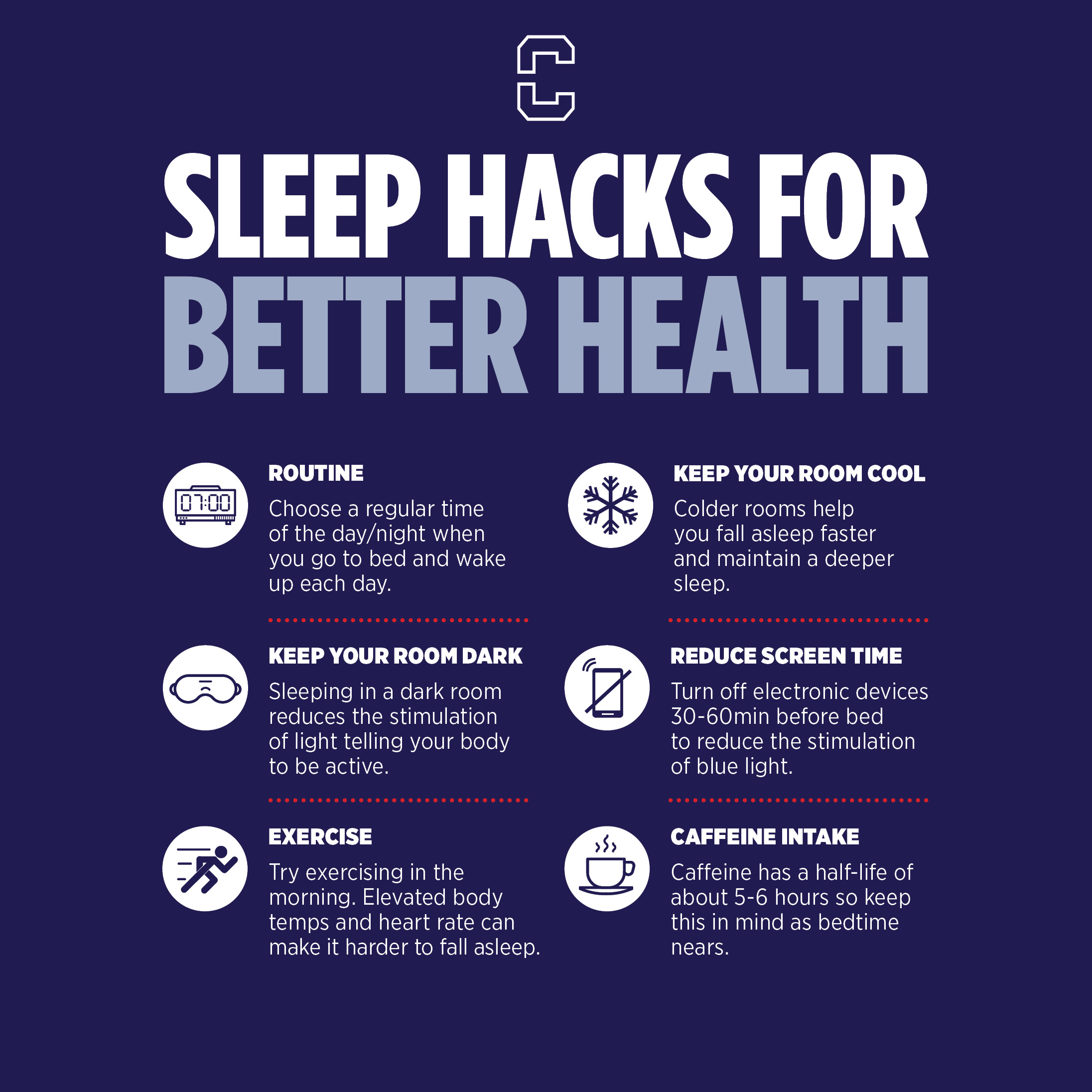Sleep Hacks for Better Health
One of the most overlooked areas to upgrade your physical and mental performance is simply getting a good night’s sleep. Too often, we sacrifice sleep to cram more into our day. With a healthy sleep routine, you provide your body with the opportunity to repair damaged tissue and to synthesise proteins, both of which are vital functions for a healthy body. These restorative functions also modulate your energy levels and mood, which in turn affect everything from hormone levels and regulating stress to balancing your appetite and metabolism.
Aiming to achieve 6 – 8 hours per night and establish a regular sleeping pattern are recommended for optimal physical and mental performance and recovery. The following tips will help give your body the chance to recover and repair like it needs to.
Routine:
Choose a regular time of the day/night when you go to bed and wake up, forming a consistent pattern for your body’s circadian rhythms.
Keep your room dark:
Sleeping in a dark room with minimal light entering from outside reduces the stimulation of light telling your body to be active. In the morning, let in as much natural light as possible to combat drowsiness.
Keep your room cool:
Colder rooms help you fall asleep faster and maintain a deeper sleep. During summer, keep the window open just before bed (or put on the air conditioner) to allow cooler air to flow in. In winter, hold off from putting the heater on directly in the room.
Exercise:
The more intense your workout is, the more blissful your sleep. If you have trouble sleeping at night, try exercising in the morning. Elevated body temperatures and heart rate in an evening workout can make it harder to fall asleep.
Reduce screen time:
Find a window of 30 – 60 mins before going to sleep without using your mobile phone, tablet, TV or computer to reduce the stimulation of blue light in your eyes. Blue light increases alertness, delaying the body’s body clock and impairing the release of melatonin.
Caffeine intake:
Caffeine has a half-life of about 5-6 hours, which means if you have a coffee at 4 PM, there is still half the amount of caffeine in your system at 9-10 PM. Reducing caffeine intake after lunch will help mitigate effects of caffeine-induced sleep delay. Swap it out for herbal tea like chamomile, ginger or peppermint.
Meditation and mindfulness:
Meditation trains the brain to be more aware of the moment. It helps stop a racing mind and assists in lowering the heart rate and stimulating slower breathing patterns found in deeper sleep. Guided meditation apps can be useful aids to help you fall asleep faster.
Foods for sleep:
Melatonin is a natural hormone that helps control the sleep-wake cycles. Almonds and walnuts are rich sources of melatonin, and foods rich in tryptophan (such as cottage cheese and milk) can assist in increasing serotonin levels and synthesizing melatonin. Avoiding carb-heavy meals at night and high glycemic index (GI) foods, such as high-sugar foods, can prevent a spike in blood sugar levels and decrease serotonin levels. Low GI carbohydrates, such as whole grains or oatmeal, are better choices given their gradual release of sugars.
If sleep continues to be a consistent challenge, talk to your doctor to discuss other options that might be right for you.

